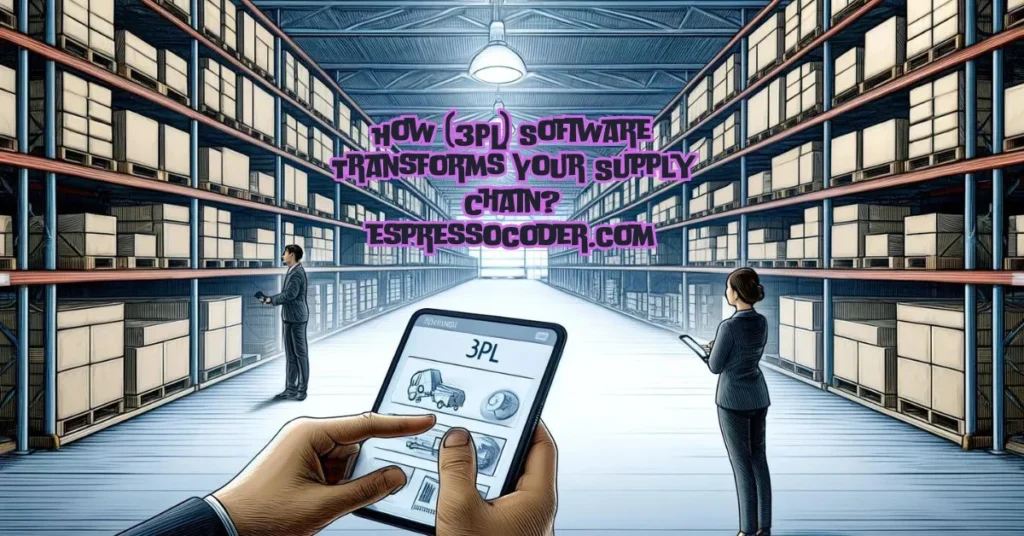In the modern world, efficient logistics is a cornerstone for successful businesses across a variety of industries. Whether it’s shipping products, managing inventories, or ensuring the smooth flow of goods from suppliers to customers, logistics plays a vital role in meeting customer expectations and driving profitability.
As businesses face increasingly complex supply chains, the need for advanced logistics technology, particularly third-party logistics (3PL) software, becomes apparent.
Contents
Why Logistics Technology Matters
Logistics technology helps businesses streamline and optimize their supply chain operations. Efficient management of shipping, warehousing, inventory, and distribution can lead to substantial cost savings, improved customer satisfaction, and enhanced overall performance. Logistics technology also helps businesses stay competitive in an ever-evolving market by allowing them to respond swiftly to customer demands.
The Emergence of Third-Party Logistics (3PL) Software
Third-party logistics (3PL) software has emerged as a crucial tool for businesses looking to outsource their logistics operations. 3PL providers manage various aspects of logistics, including transportation, warehousing, and distribution, on behalf of their clients. By leveraging specialized software, 3PL providers can offer businesses a range of services that are efficient, cost-effective, and flexible.
The third party logistics software streamlines and automates many of the tasks involved in logistics management. This technology enables 3PL providers to handle large volumes of data, track shipments in real time, optimize routes, manage inventory, and provide customers with up-to-date information on their orders. The result is a seamless logistics experience that benefits both businesses and their customers.
Advantages of 3PL Software for Businesses
- Cost Savings: By outsourcing logistics to a 3PL provider, businesses can save on infrastructure, personnel, and operational costs. 3PL providers can negotiate better shipping rates and optimize transportation routes, resulting in lower overall costs.
- Improved Efficiency: 3PL software automates many logistics processes, reducing the likelihood of human error and speeding up operations. This efficiency leads to faster delivery times and enhanced customer satisfaction.
- Scalability: As businesses grow, their logistics needs often become more complex. 3PL software allows businesses to scale their operations quickly and efficiently without the need for significant investments in infrastructure.
- Access to Expertise: 3PL providers have extensive experience and knowledge in logistics management. By partnering with them, businesses can benefit from this expertise and gain insights into best practices and industry trends.
- Real-Time Visibility: 3PL software provides businesses with real-time data on their shipments, inventory levels, and transportation routes. This visibility enables businesses to make informed decisions and address any issues promptly.
- Focus on Core Competencies: By outsourcing logistics, businesses can focus on their core competencies, such as product development, sales, and customer service. This focus can lead to improved overall performance and growth.
Key Features of Third-Party Logistics Software
- Order Management: 3PL software allows businesses to manage orders efficiently, from order placement to final delivery. It can integrate with other systems, such as e-commerce platforms, to provide a seamless ordering experience.
- Inventory Management: Businesses can track inventory levels in real time, allowing them to optimize stock levels and avoid overstocking or stockouts. Inventory management features also enable businesses to forecast demand and plan accordingly.
- Transportation Management: 3PL software optimizes transportation routes and modes, leading to faster delivery times and cost savings. It can also provide real-time tracking and updates on shipments.
- Warehousing and Distribution: 3PL software helps businesses manage warehousing and distribution operations efficiently, including storage, picking, packing, and shipping.
- Analytics and Reporting: The software offers robust analytics and reporting capabilities, allowing businesses to monitor performance, identify trends, and make data-driven decisions.
Challenges and Considerations
While 3PL software offers numerous benefits, businesses should also be aware of potential challenges:
- Integration with Existing Systems: Integrating 3PL software with existing systems can be complex and may require additional resources and expertise.
- Data Security and Privacy: Businesses must ensure that their data is secure and that the 3PL provider adheres to privacy regulations.
- Choosing the Right Provider: Not all 3PL providers offer the same level of service. Businesses should carefully evaluate potential partners to ensure they meet their specific needs and expectations.
- Dependency on Third-Party Providers: While outsourcing logistics can be beneficial, businesses should be aware of the potential risks associated with dependency on third-party providers.
FAQs about Third-Party Logistics (3PL) Software
What is third-party logistics (3PL) software?
Third-party logistics (3PL) software is a technology solution that helps businesses outsource their logistics operations to third-party providers. The software streamlines and automates various logistics tasks, such as order management, transportation, and warehousing.
How does 3PL software benefit businesses?
3PL software offers several benefits, including cost savings, improved efficiency, scalability, access to expertise, real-time visibility, and the ability to focus on core competencies.
What should businesses consider when choosing a 3PL provider?
Businesses should consider the provider’s reputation, experience, range of services offered, technology capabilities, and data security measures. It’s essential to choose a provider that aligns with the business’s needs and goals.
How does 3PL software improve transportation management?
3PL software optimizes transportation routes and modes, leading to faster delivery times and cost savings. It also provides real-time tracking and updates on shipments, allowing businesses to monitor the progress of their deliveries and make informed decisions.
Conclusion
In conclusion, third-party logistics (3PL) software is a valuable tool for businesses seeking to optimize their supply chain operations and stay competitive in a dynamic market. By leveraging the advantages of 3PL software, businesses can streamline logistics processes, improve efficiency, and focus on their core competencies for long-term success.











